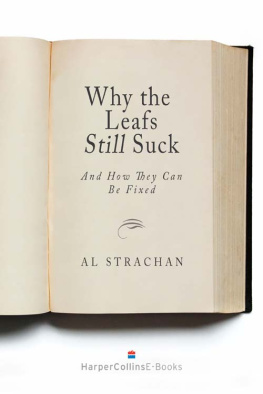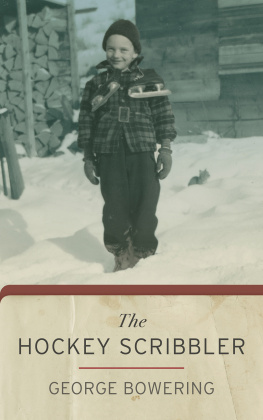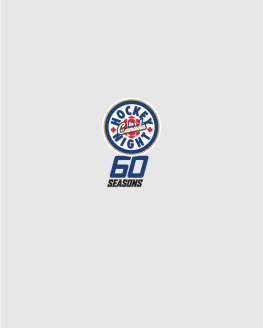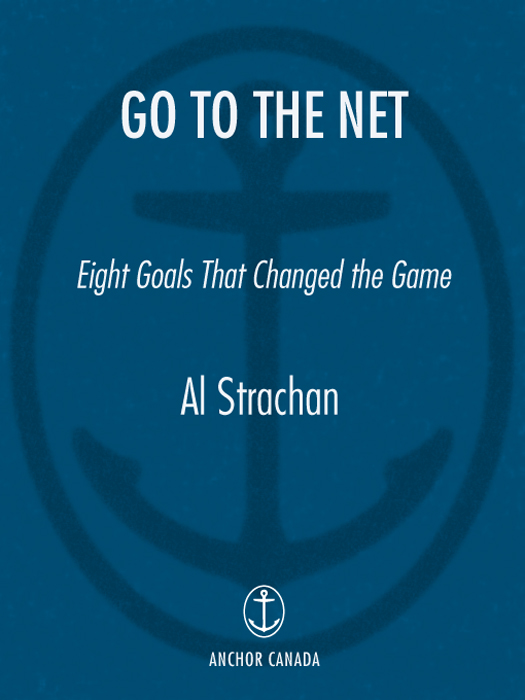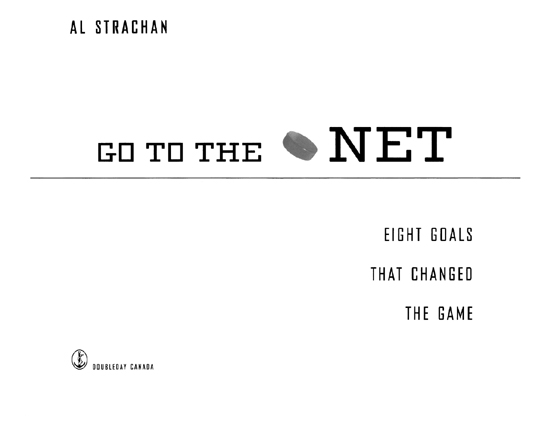Al Strachan - Go to the Net: Eight Goals That Changed the Game
Here you can read online Al Strachan - Go to the Net: Eight Goals That Changed the Game full text of the book (entire story) in english for free. Download pdf and epub, get meaning, cover and reviews about this ebook. year: 2011, publisher: Doubleday Canada, genre: Detective and thriller. Description of the work, (preface) as well as reviews are available. Best literature library LitArk.com created for fans of good reading and offers a wide selection of genres:
Romance novel
Science fiction
Adventure
Detective
Science
History
Home and family
Prose
Art
Politics
Computer
Non-fiction
Religion
Business
Children
Humor
Choose a favorite category and find really read worthwhile books. Enjoy immersion in the world of imagination, feel the emotions of the characters or learn something new for yourself, make an fascinating discovery.

- Book:Go to the Net: Eight Goals That Changed the Game
- Author:
- Publisher:Doubleday Canada
- Genre:
- Year:2011
- Rating:4 / 5
- Favourites:Add to favourites
- Your mark:
Go to the Net: Eight Goals That Changed the Game: summary, description and annotation
We offer to read an annotation, description, summary or preface (depends on what the author of the book "Go to the Net: Eight Goals That Changed the Game" wrote himself). If you haven't found the necessary information about the book — write in the comments, we will try to find it.
There are moments in hockey history that matter even more than the question of who won or lost, when a single goal can tell us about the game itself.
Among the most famous and stirring in hockey lore was Paul Coffeys dramatic counter-attack in the 1984 Canada Cup against the USSR. Canadian fans were terrified of the dazzling Soviets, and were nervous about another drubbing like the 8-1 loss Canada had suffered the last time the two teams had played. Coffeys pass interception and rush up-ice is now the stuff of legend, but it was not only the defencemans skill that won the day.
Glen Sather was as mindful of the vaunted Soviet attack as any Canadian fan, and he put together a game plan with one objective: to keep the puck away from the Russians. Once Coffey got the puck into the Soviet zone, it was Tonellis spadework along the boards and Bossys refusal to budge from the crease that allowed Coffeys point shot to eventually find its way to the net. That goal beat the Soviets and changed the way the game was played forever.
Other goals were equally shaped by their time. Think of Guy Lafleurs notorious too- many- men- on- the- ice goal in 1979, which effectively ended Don Cherrys career as a coach. Or Wayne Gretzkys overtime goal in Game Two of the Smythe Division finals in 1988 against the Calgary Flames, arguably the goal that marked the pinnacle of his career. Or Mario Lemieuxs 1987 Canada Cup-winning goal. Or Brett Hulls disputed 1999 Stanley Cup-winner.
Al Strachan, whose insider hockey connections are second to none, was witness to all these goals. He has been writing about the game we love for more than three decades. Chummy with the players, respected by coaches, and friends with the broadcasters and journalists, he knows what is going on in the dressing rooms and the board rooms, and he understands what is evolving on the ice. He has talked to the men who made the decisions, as well as to those who made the plays. In Go to the Net, he passes on, in the trenchant style of his famous columns, insights into the goals that tell us not only about the way the game has changed but also about the gritty soul of hockey that will never change.
Al Strachan: author's other books
Who wrote Go to the Net: Eight Goals That Changed the Game? Find out the surname, the name of the author of the book and a list of all author's works by series.

